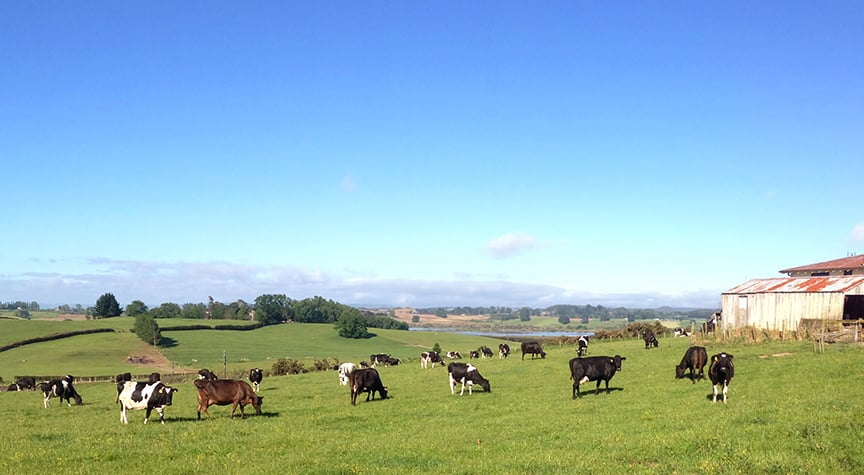EGLE Issues General Consent Order for CAFOs With Anaerobic Digesters Owned by Separate Entities

Michigan’s Department of Environment Great Lakes and Energy (the department) has issued a form General Administrative Consent Order for Concentrated Animal Feeding Operations (CAFOs) with anaerobic digesters where the digester and CAFO are not owned by the same entities (the “CAFO consent order”). All CAFOs with anaerobic digesters that cannot comply with the current general permit are obligated under MCL §324.3112 (4), to comply with the CAFO consent order.
A CAFO is a lot or facility where animals are kept and fed for more than 45 days in a 12-month period. CAFOs are subject to permitting under Part 31 (Water Resources Protection) of the Natural Resources and Environmental Protection Act. The department’s Water Resources Division also regulates the use of anaerobic digesters for the partial treatment of farm production area waste. Anaerobic digesters are low- or no- oxygen chambers that facilitate the breakdown of manure by anaerobic bacteria with the release of methane and other gases. Methane generated by anaerobic digesters can be burned, sold as a product, or converted to electricity.
Michigan requires CAFOs to obtain either an individual National Pollutant Discharge Elimination System (NPDES) permit or a certificate of coverage under the general permit unless exempt. There are currently two Part 31 general permits for CAFOs, NPDES Permit No. MIG010000 from 2020 (the “2020 general permit”) and from 2015 (the “2015 permit”).
The 2020 general permit included more requirements than the 2015 permit and is currently being contested in court, where the issues raised include new conditions imposed in the 2020 general permit and whether the challenged new permit conditions are an unpromulgated rule. The Michigan Supreme Court will hear arguments in the next nine months. While the 2020 permit is stayed, CAFOs may operate under the 2015 permit (which, by its terms, expired in 2020), but the department is not issuing new coverage certificates for CAFOs. Also, certificates of coverage cannot be modified to allow the operation of anaerobic digesters not already permitted, including digesters owned by entities that don’t own or operate the CAFO.
In response to this uncertainty, the department issued the CAFO consent order. If signed, the CAFO consent order requires both a CAFO owner and the owner of an anaerobic digester located at the CAFO that does not comply with the 2015 permit to meet the following criteria:
- Prepare an agreement between the CAFO and digester regarding responsibility for digester operations.
- Create a treatment system contingency and redundancy plan.
- Submit a comprehensive nutrient management plan, including the digester.
- Ensure that the digester system is built to the Natural Resources Conservation Service’s 2017 Conservation Practice Standard.
- Limit materials generated outside of the facility entering the digester to 5% of the total treatment system volume (this is inconsistent with a 20% limit in the 2015 permit).
- Have signed agreements with outside animal feeding operations (but not other CAFOs—which are barred—meaning that multi-CAFO digesters may not be located at a CAFO under the general permit) sending waste to the digester.
- Not land apply raw or partially digested outside material.
- Operate the CAFO consistent with the information provided to the department in the CAFO’s 2020 general permit application.
- Authorize the department to reasonably access the CAFO and digester.
- Meet specific signature requirements.
The CAFO consent order requirements take effect for any particular CAFO and anaerobic digester on the date that the department receives and approves a certificate of entry from the CAFO owner and the anaerobic digester owner. The CAFO consent order will remain in effect until the department issues a final decision on the permittee’s application for a 2020 general permit.
In effect, the department has forced every digester accepting more than 5% food waste and any digester accepting manure from another CAFO to obtain an individual NPDES permit. Further, the department has not addressed many concerns regarding its recently stated position that land application of digestate must be permitted Part 31—an issue for digesters that falls outside this CAFO consent order.
CAFOs with separately owned anaerobic digesters, digesters accepting waste from multiple CAFOs, and digesters not located at a CAFO should evaluate their exposure based on the CAFO consent order.
In This Article
You May Also Like
Certain Administrative Claims Now Accrue Upon Injury Not Date of Agency Action The Death of Chevron: The Next Step in Remaking Administrative Law?